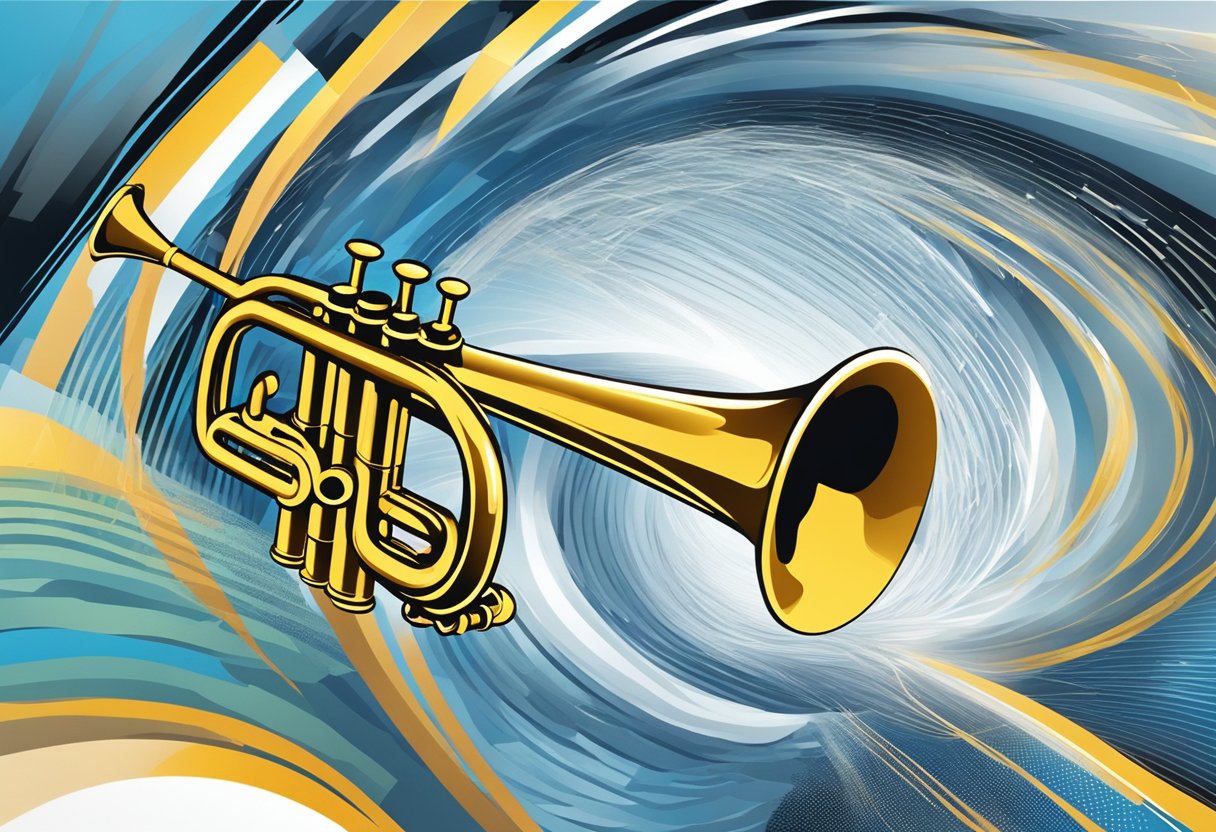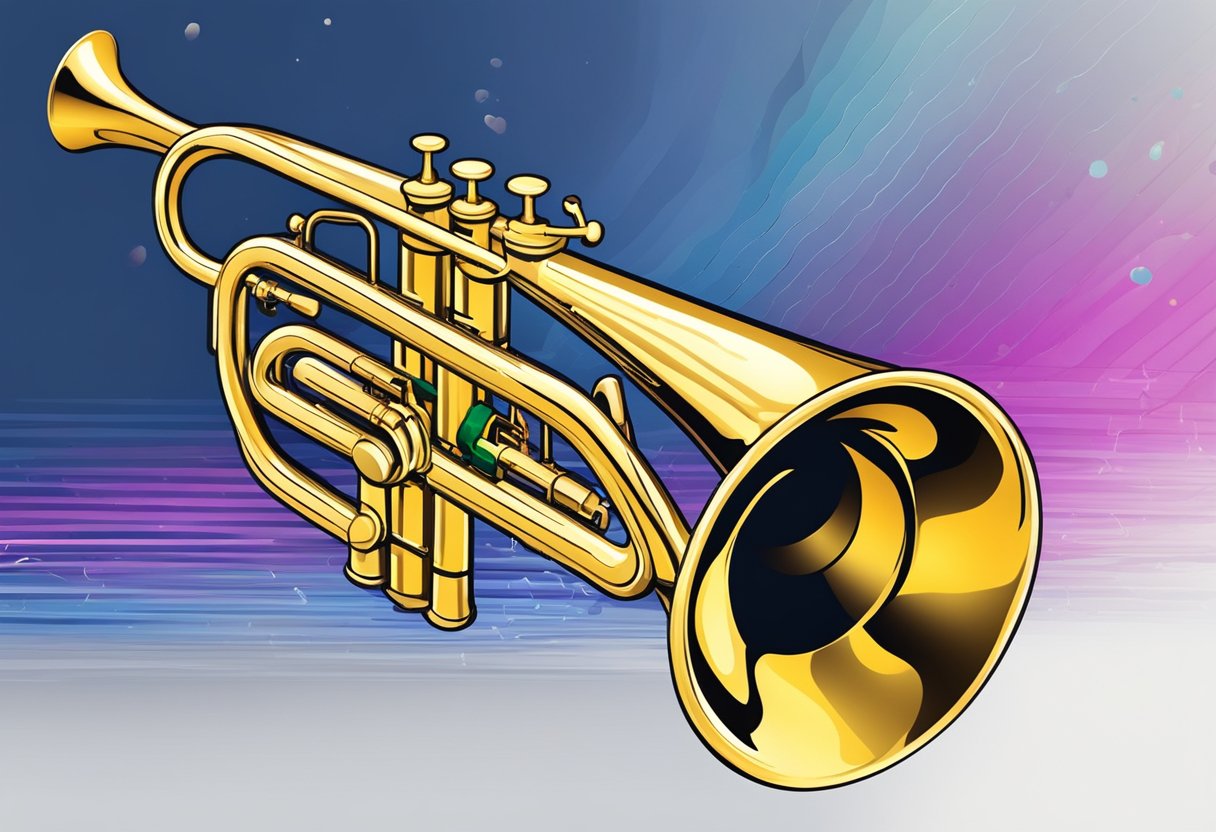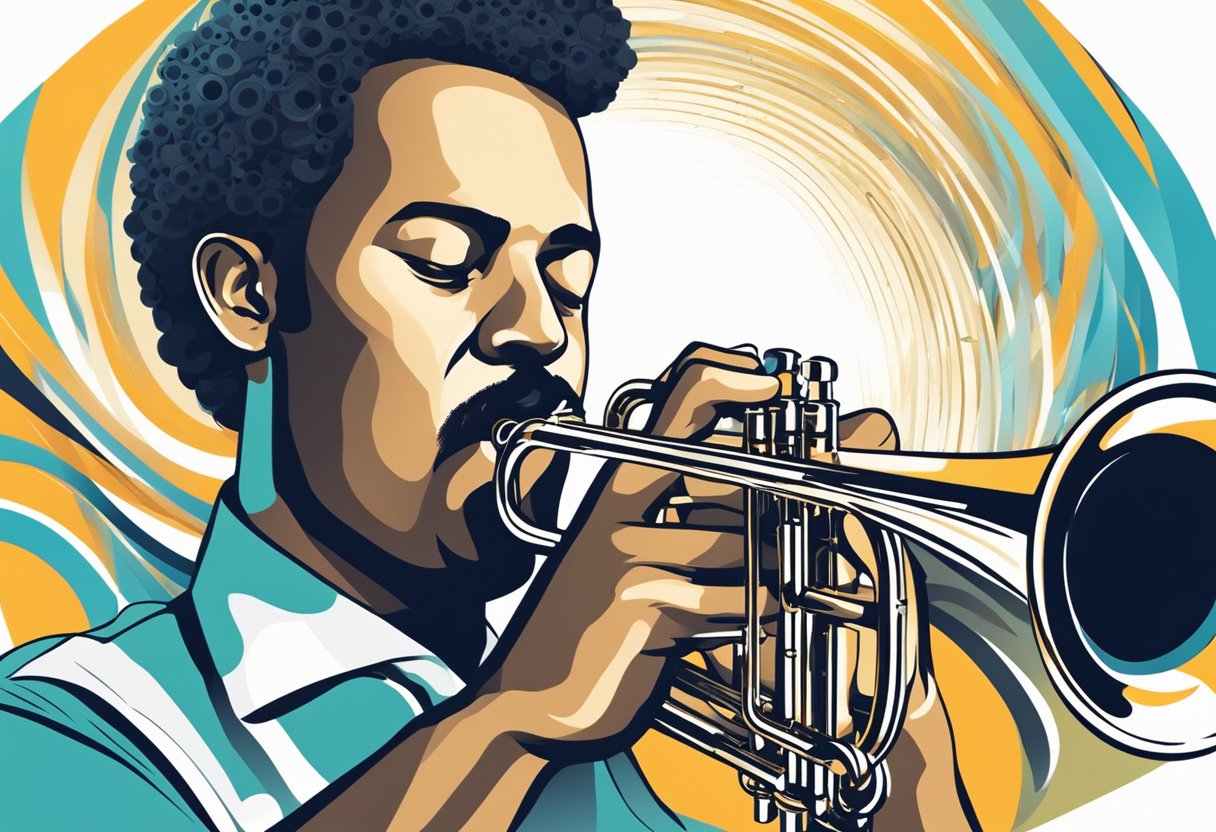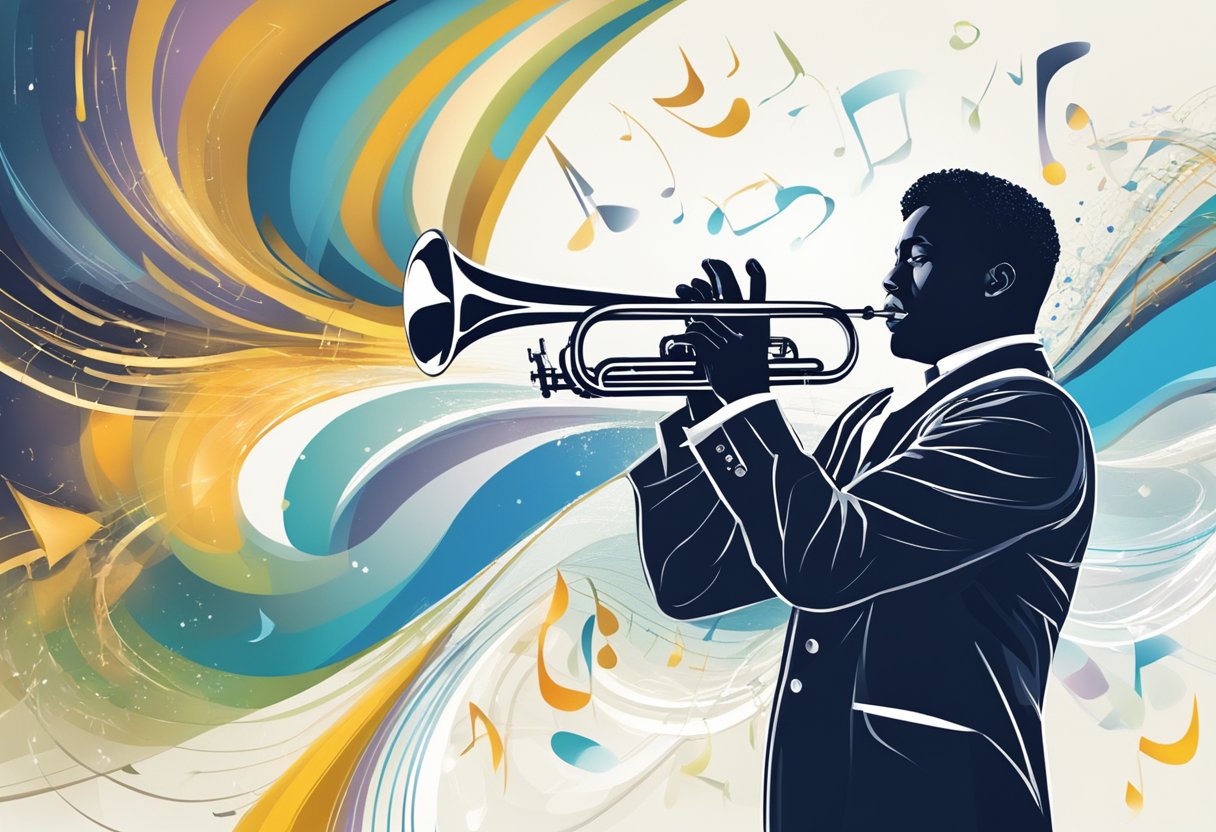Playing the trumpet is an art form that requires skill and dedication. It is also a physically demanding activity that can lead to long-term damage to the ears and hearing. Trumpet players are exposed to high decibel levels that can cause hearing loss and tinnitus, a ringing or buzzing in the ears.
Understanding Sound and Hearing is crucial to understanding how playing the trumpet can damage hearing. Sound travels in waves and is measured in decibels. The human ear can hear sounds ranging from 0 to 140 decibels. Prolonged exposure to sounds over 85 decibels can cause hearing damage. The sound produced by a trumpet can reach up to 130 decibels, making it one of the loudest instruments in the orchestra.
Potential Hearing Damage from Trumpet Playing is a real concern for musicians. Trumpet players are at risk of developing noise-induced hearing loss (NIHL), which is caused by damage to the hair cells in the inner ear. NIHL is irreversible and can lead to permanent hearing loss. The risk of hearing damage is higher for musicians who play in loud environments or for long periods of time.
Key Takeaways
- Playing the trumpet can cause long-term damage to the ears and hearing.
- Trumpet players are exposed to high decibel levels that can cause hearing loss and tinnitus.
- Prolonged exposure to sounds over 85 decibels can cause hearing damage.
Understanding Sound and Hearing
Playing a musical instrument, like the trumpet, involves producing sound waves that travel through the air and enter the ear. Understanding how sound and hearing work is essential to understanding the potential risks associated with playing the trumpet.
Sound is a type of energy that travels through the air as waves. These waves are created by vibrations, such as those produced by a trumpet player blowing into the instrument. The sound waves travel through the air and enter the ear, where they cause the eardrum to vibrate.
The vibrations of the eardrum are transmitted to the inner ear, which contains tiny hair cells that are responsible for converting the vibrations into electrical signals that are sent to the brain. The brain then interprets these signals as sound.
When sound waves are too loud or prolonged, they can cause damage to the hair cells in the inner ear. This damage can result in hearing loss or tinnitus, a ringing or buzzing in the ears.
The loudness of sound is measured in decibels (dB). Exposure to sound levels above 85 dB for an extended period can cause hearing damage. For reference, a typical conversation is around 60 dB, while a trumpet can produce sound levels of up to 110-120 dB.
It’s essential to protect your hearing when playing the trumpet or any other musical instrument. Using earplugs or earmuffs can help reduce the risk of hearing damage. Additionally, taking regular breaks and limiting exposure to loud sounds can help protect your hearing.
The Physics of Trumpet Sound
Playing the trumpet involves creating sound waves through the vibration of the lips. The lips are buzzed together to create a sound that is amplified by the trumpet’s bell and then projected outward. The sound produced by a trumpet is a complex mixture of harmonics, with the fundamental frequency determined by the length of the trumpet’s tubing.
The physics of trumpet sound can be broken down into three main components: the lips, the mouthpiece, and the trumpet itself. The lips are responsible for creating the initial vibration that sets the air in motion. The mouthpiece serves as a resonator, amplifying and shaping the sound produced by the lips. Finally, the trumpet’s bell acts as a further amplifier, projecting the sound outward.
The pitch of the sound produced by a trumpet is determined by the frequency of the vibration of the lips. This frequency can be adjusted by changing the tension of the lips or by adjusting the length of the tubing using the valves. The higher the tension of the lips, the higher the frequency of the sound produced. Conversely, the longer the tubing, the lower the frequency of the sound produced.
In addition to pitch, the sound produced by a trumpet is also affected by the player’s technique. For example, the intensity of the sound can be increased by blowing harder or by increasing the amount of air flow through the mouthpiece. The tone of the sound can also be adjusted by changing the shape of the lips or by using different mouthpiece sizes.
Overall, the physics of trumpet sound is a complex and fascinating topic. While playing the trumpet can be a rewarding experience, it is important to be aware of the potential risks to hearing. By taking appropriate precautions, such as wearing hearing protection, trumpet players can enjoy their music while minimizing the risk of hearing damage.
Potential Hearing Damage from Trumpet Playing



Playing the trumpet can potentially damage hearing. According to a discussion on the Trumpet Herald forum, a certain degree of hearing loss, especially higher frequency, is normal and expected as people get older, and this is somewhat more pronounced in musicians, depending on the settings in which they usually play. Rock musicians, for instance, routinely exhibit dramatic hearing loss, and many develop tinnitus (ringing in the ears) (Trumpet Herald forum).
Factors influencing the use of hearing protection by trumpet players include a lack of acclimatization time, a loss of “fortissimo blare” from the aural distortion generated by the 110- to 120-dB SPL produced at the open ear with fortissimo playing, and a shallow earmold seal, leading to a large occlusion effect (PubMed).
However, well-fitted, high-fidelity earplugs can prevent music-induced hearing disorders in trumpet players (Factors Influencing Use of Hearing Protection by Trumpet Players). A study conducted by the National Institutes of Health (NIH) found that hearing loss and tinnitus are common among musicians, and trumpet players were among the most affected (NIH).
In conclusion, playing the trumpet can potentially damage hearing, particularly if players do not use proper hearing protection. While some degree of hearing loss is normal and expected as people age, musicians are at a higher risk, and trumpet players should take steps to protect their hearing to prevent music-induced hearing disorders.
Hearing Damage Symptoms
Playing trumpet can lead to hearing damage. The symptoms of hearing damage can vary from person to person and can be temporary or permanent. Some of the common symptoms of hearing damage include:
- Ringing or buzzing in the ears (tinnitus)
- Muffled or distorted hearing
- Difficulty understanding speech, especially in noisy environments
- Sensitivity to loud sounds (hyperacusis)
- Pain or discomfort in the ears
It is important to note that hearing damage can occur gradually over time, and the symptoms may not be noticeable at first. However, repeated exposure to loud sounds can lead to permanent hearing loss.
If you experience any of these symptoms after playing trumpet, it is important to take a break and give your ears a rest. Continuing to play through the pain or discomfort can lead to further damage.
It is also recommended to see a hearing healthcare professional if you experience any of these symptoms. They can perform a hearing test to determine the extent of the damage and provide recommendations for hearing protection and prevention of further damage.
Overall, it is important to be aware of the potential for hearing damage when playing trumpet and take steps to protect your hearing.
Preventive Measures for Trumpet Players



While playing trumpet can be an enjoyable experience, it can also lead to hearing damage if proper precautions are not taken. Here are some preventive measures that trumpet players can take to protect their hearing:
1. Use Hearing Protection
Trumpet players should use hearing protection to reduce their risk of hearing damage. High-fidelity earplugs are a good option for musicians as they allow for clear sound while reducing noise levels. A study found that the use of well-fitted earplugs by trumpet players can prevent music-induced hearing disorders [1].
2. Take Breaks
Taking breaks during practice or performance can help reduce the risk of hearing damage. Trumpet players should take short breaks every 20-30 minutes to give their ears a rest. This can help prevent overexposure to loud sounds and reduce the risk of hearing damage.
3. Limit Exposure to Loud Sounds
Trumpet players should limit their exposure to loud sounds outside of playing their instrument. This includes avoiding loud concerts and events, turning down the volume on headphones and speakers, and avoiding noisy environments whenever possible.
4. Maintain Good Technique
Maintaining good technique while playing the trumpet can help reduce the risk of hearing damage. Trumpet players should avoid playing at excessively loud volumes and should focus on producing a clear sound rather than a loud one.
5. Get Regular Hearing Check-Ups
Regular hearing check-ups can help trumpet players monitor their hearing and detect any early signs of hearing damage. This can help prevent further damage and allow for early intervention if necessary.
By following these preventive measures, trumpet players can reduce their risk of hearing damage and continue to enjoy playing their instrument for years to come.
[1] Factors Influencing Use of Hearing Protection by Trumpet Players, NCBI. https://www.ncbi.nlm.nih.gov/pmc/articles/PMC4040860/
Medical Interventions for Hearing Damage
If someone suspects they have hearing damage from playing the trumpet, they should seek medical attention from an audiologist or an otolaryngologist (ENT). The following are some medical interventions that may be recommended:
Hearing Aids
If someone has hearing loss, hearing aids may be recommended to help amplify sound and improve their hearing. Hearing aids come in different styles and can be customized to fit the individual’s needs.
Cochlear Implants
For severe cases of hearing loss, cochlear implants may be recommended. Cochlear implants are electronic devices that are surgically implanted into the ear to bypass damaged parts of the inner ear and stimulate the auditory nerve directly.
Tinnitus Management
Tinnitus is a common side effect of hearing damage and can be managed through various techniques, including sound therapy, cognitive behavioral therapy, and medication.
Hearing Protection
To prevent further hearing damage, it is important for trumpet players to wear hearing protection, such as earplugs or earmuffs, when playing in loud environments. Customized hearing protection can be made to fit the individual’s ears and provide adequate protection while still allowing them to hear the music.
It is important for trumpet players to take steps to protect their hearing and seek medical attention if they suspect they have hearing damage. With the right interventions and management techniques, individuals can continue to enjoy playing the trumpet while protecting their hearing.
Conclusion



Playing the trumpet can lead to hearing loss, especially if the musician does not use hearing protection. The sound produced by the trumpet can reach up to 120 decibels, which is much higher than the recommended safe level of 85 decibels. According to a study published in the Journal of Occupational and Environmental Hygiene, trumpet players are at a higher risk of developing hearing loss than other musicians due to the high sound levels produced by the instrument.
Factors that may discourage trumpet players from using hearing protection include a lack of acclimatization time, a loss of “fortissimo blare” from the aural distortion generated by the 110- to 120-dB SPL produced at the open ear with fortissimo playing, and a shallow earmold seal, leading to a large occlusion effect. However, it is important for musicians to prioritize their hearing health and use appropriate hearing protection when playing the trumpet.
Trumpet players who practice or perform over a period of years should be concerned about the implications of their craft on their hearing and should be proactive in protecting their hearing. This can be achieved by using well-fitted, high-fidelity earplugs, taking breaks during practice and performances, and limiting exposure to loud sounds outside of playing the trumpet.
In conclusion, playing the trumpet can damage hearing if appropriate hearing protection is not used. However, with proper precautions, musicians can continue to enjoy playing the trumpet while protecting their hearing health.
Frequently Asked Questions



Does playing trumpet have negative effects on hearing?
Yes, playing trumpet can have negative effects on hearing. Trumpet players are exposed to loud sounds for extended periods of time, which can lead to hearing damage.
Can excessive trumpet playing lead to hearing damage?
Yes, excessive trumpet playing can lead to hearing damage. The loud sound of the trumpet can cause permanent damage to the hair cells in the inner ear, leading to hearing loss.
What are the potential risks of playing the trumpet for extended periods of time?
The potential risks of playing the trumpet for extended periods of time include hearing damage, tinnitus (ringing in the ears), and other hearing-related problems.
Is it possible to experience hearing loss from playing the trumpet?
Yes, it is possible to experience hearing loss from playing the trumpet. The loud sound of the trumpet can cause permanent damage to the hair cells in the inner ear, leading to hearing loss.
What precautions should be taken to protect hearing while playing the trumpet?
To protect hearing while playing the trumpet, musicians should wear earplugs or earmuffs to reduce the amount of sound exposure. They should also take breaks and limit the amount of time spent playing the trumpet.
Are there any studies or research on the correlation between playing the trumpet and hearing damage?
Yes, there have been several studies on the correlation between playing the trumpet and hearing damage. One study found that professional trumpet players had a higher prevalence of hearing loss than non-musicians. Another study found that trumpet players were more likely to experience tinnitus than non-musicians.

